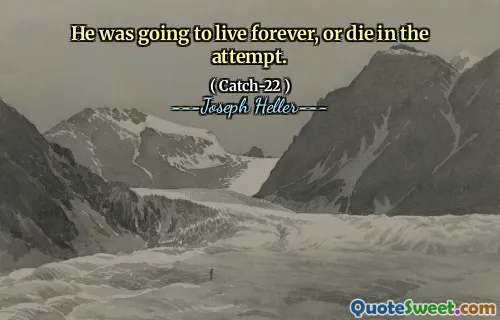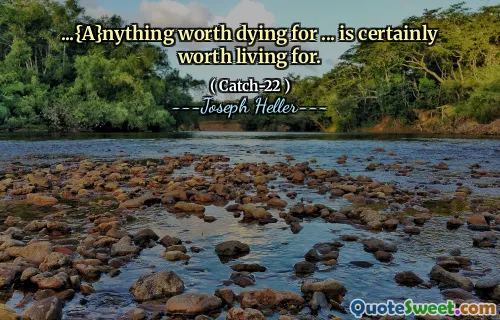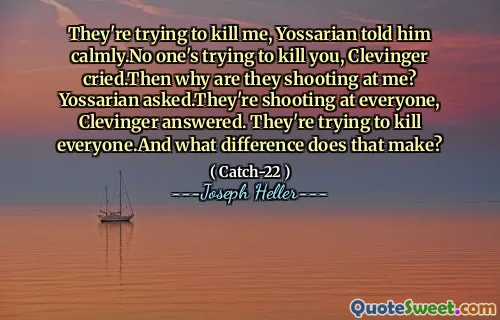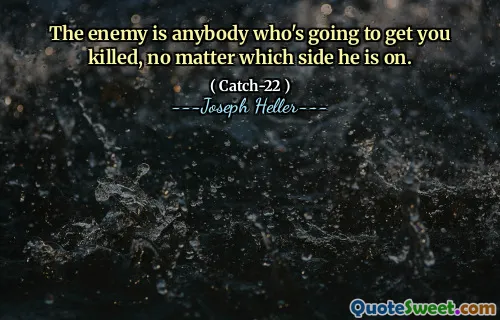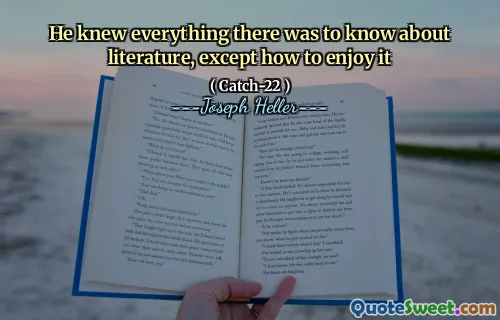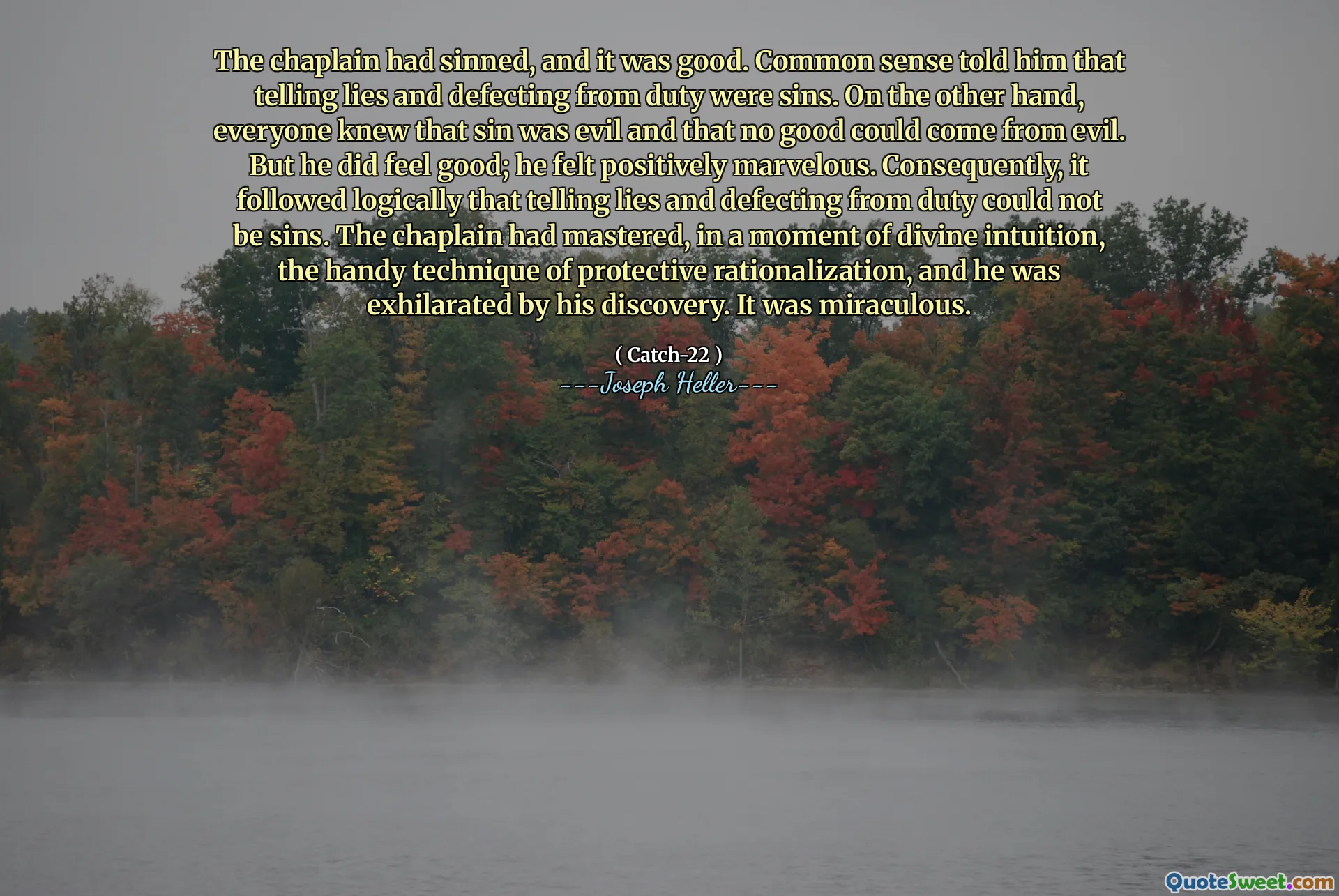
The chaplain had sinned, and it was good. Common sense told him that telling lies and defecting from duty were sins. On the other hand, everyone knew that sin was evil and that no good could come from evil. But he did feel good; he felt positively marvelous. Consequently, it followed logically that telling lies and defecting from duty could not be sins. The chaplain had mastered, in a moment of divine intuition, the handy technique of protective rationalization, and he was exhilarated by his discovery. It was miraculous.
The chaplain in Catch-22 grapples with the concept of sin and morality as he reflects on his own actions. He acknowledges that lying and abandoning his responsibilities are considered sins, yet he experiences a sense of joy and fulfillment that contradicts his understanding of sin as inherently evil. This internal conflict reveals a deeper struggle with his beliefs and the nature of morality, highlighting the complexity of human experience.
Through a moment of insight, the chaplain rationalizes his behavior, convincing himself that if he feels good, then his actions cannot be truly sinful. This protective rationalization serves as a coping mechanism for reconciling his feelings with his moral compass. Heller uses this scenario to illustrate the absurdities of war and the ways individuals navigate their conscience amidst chaos.
